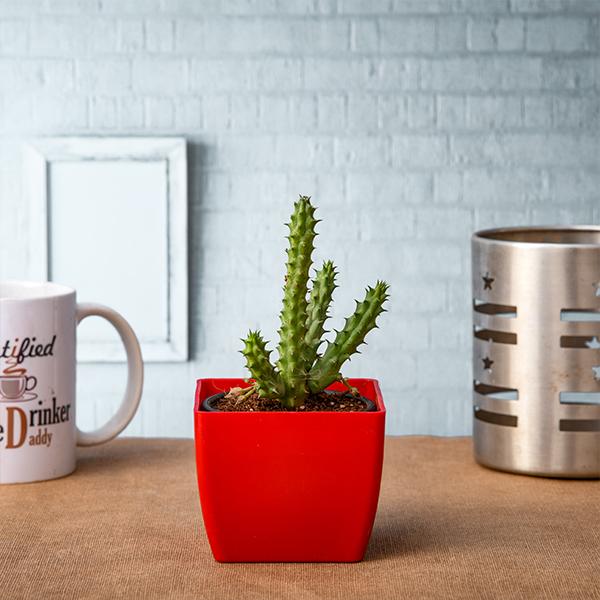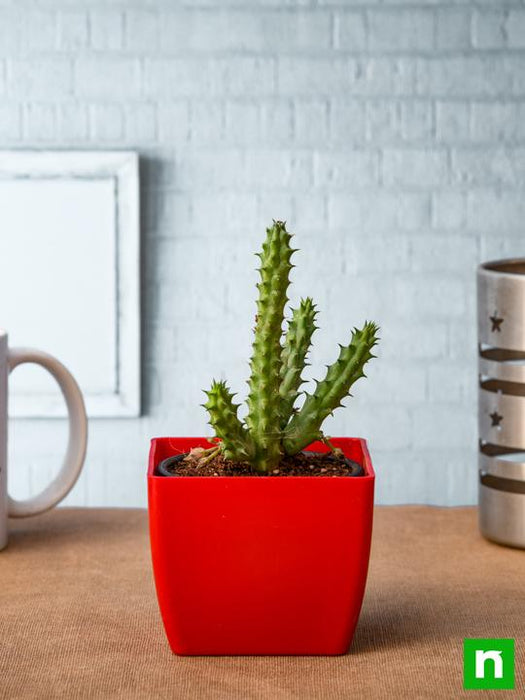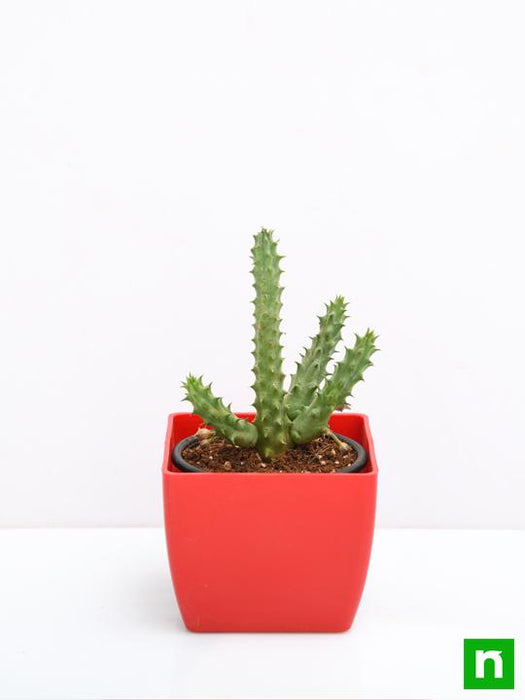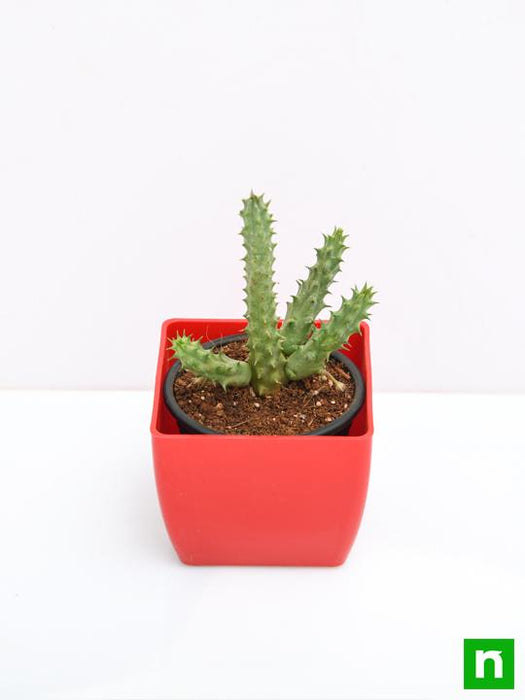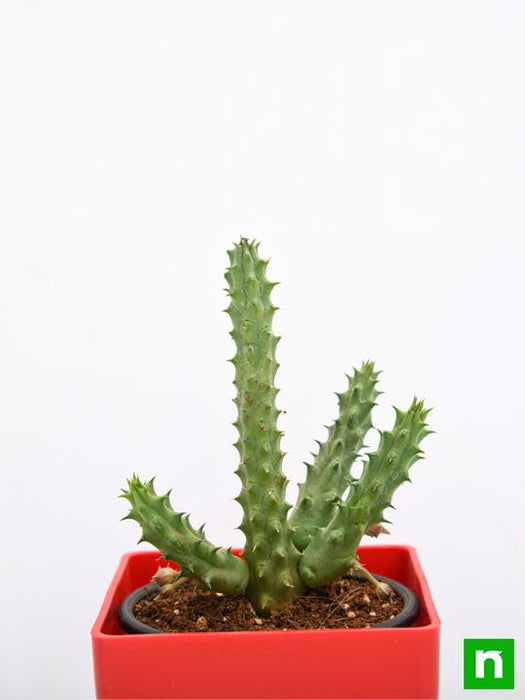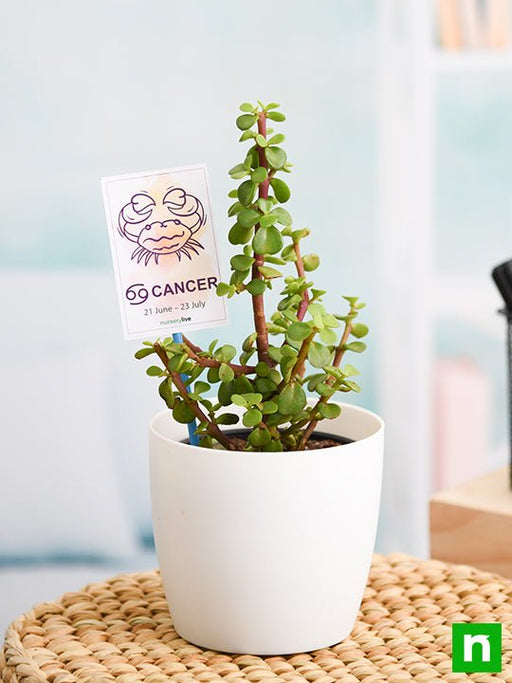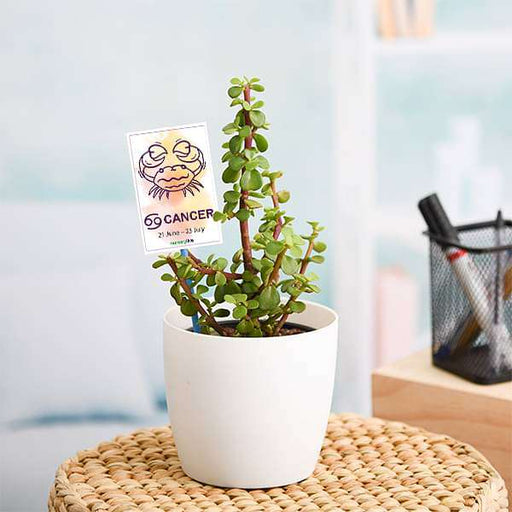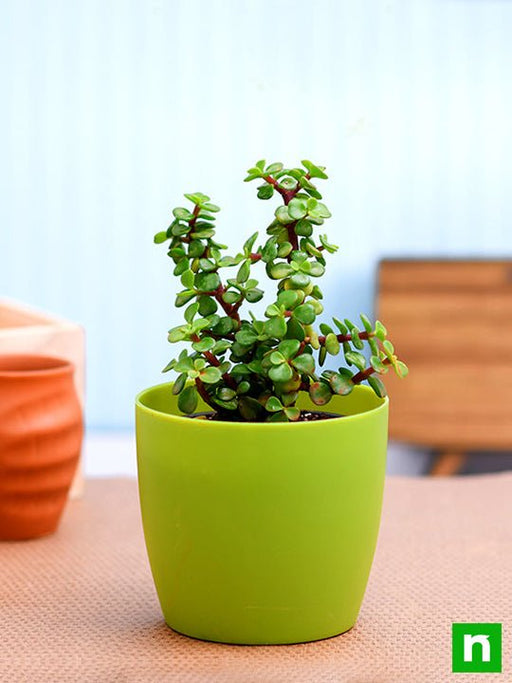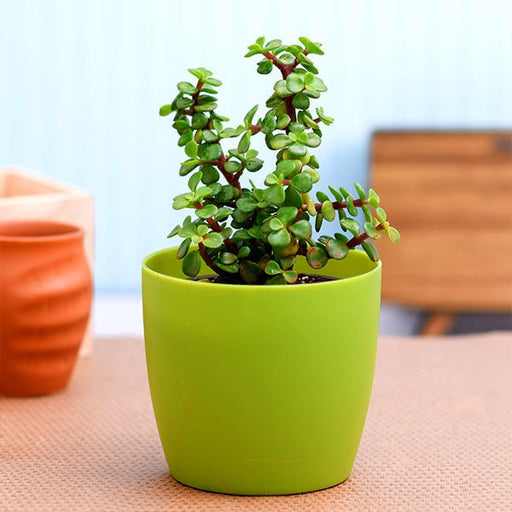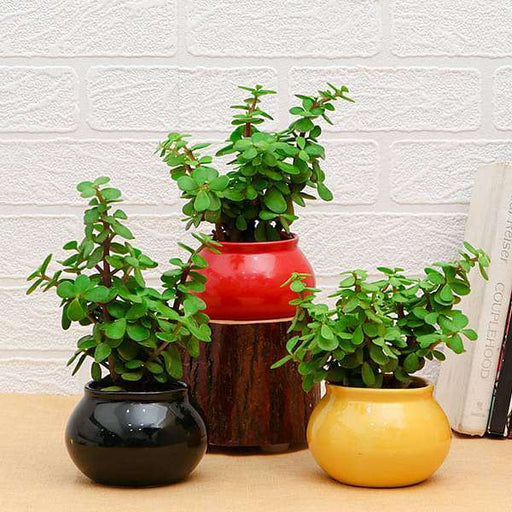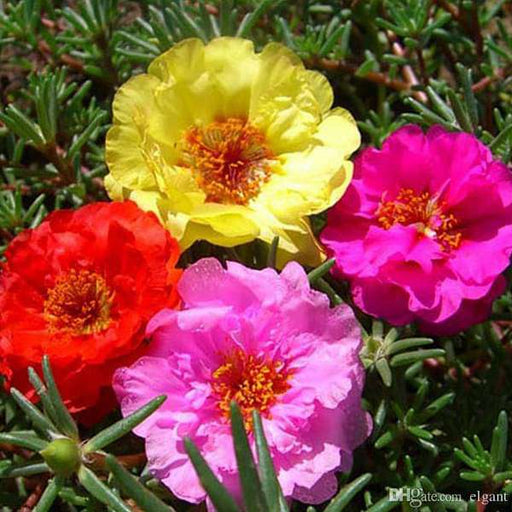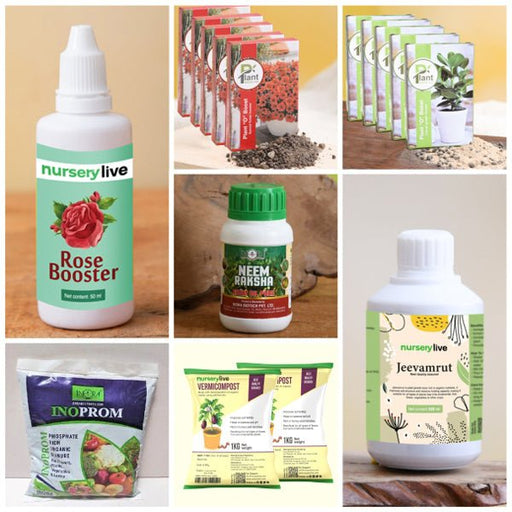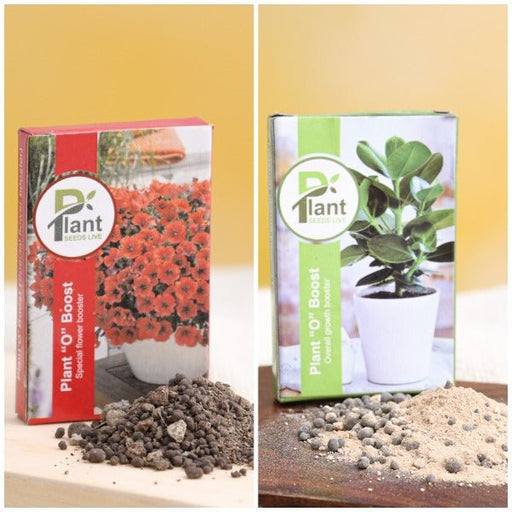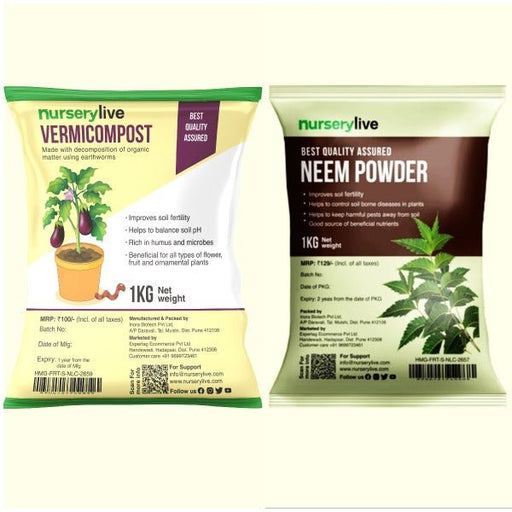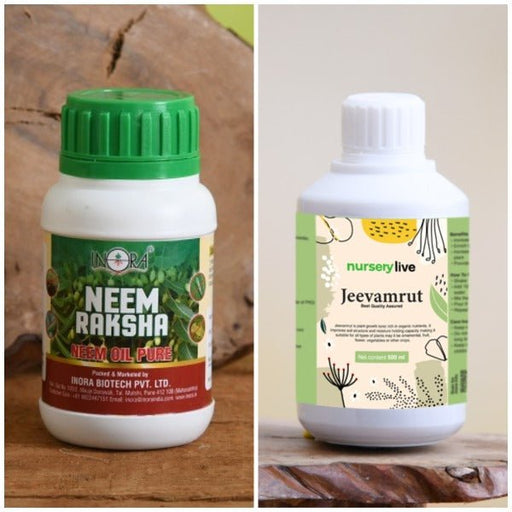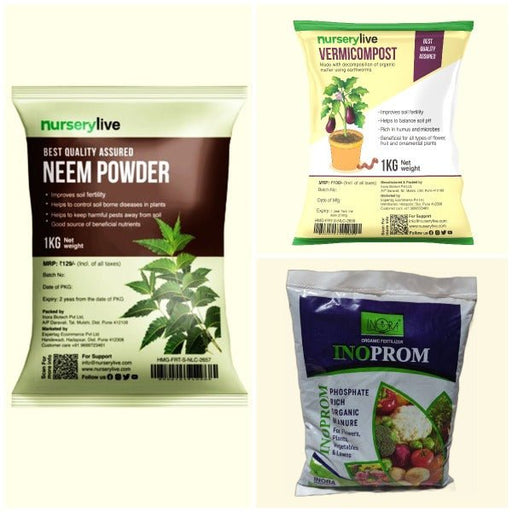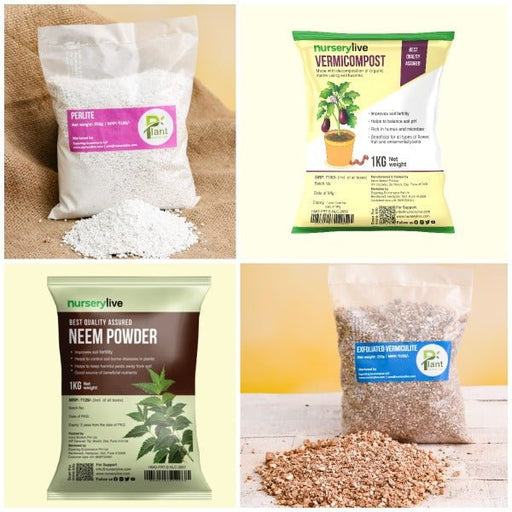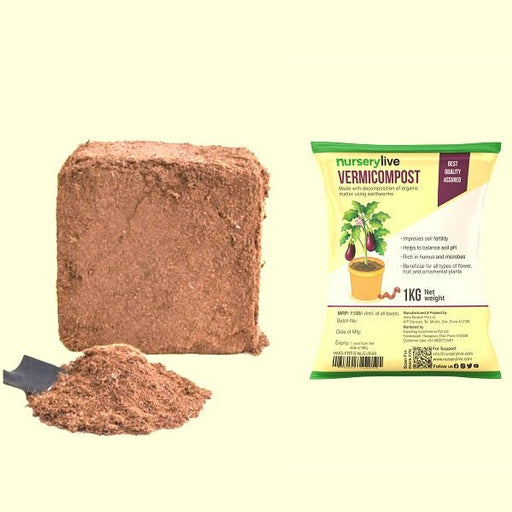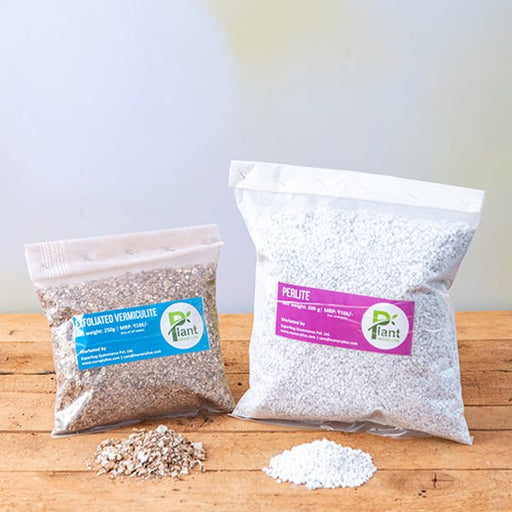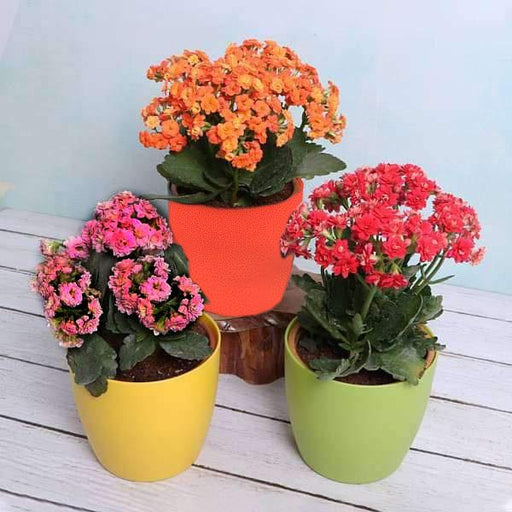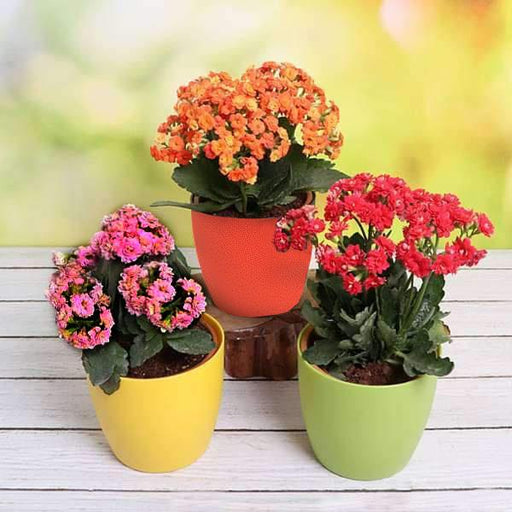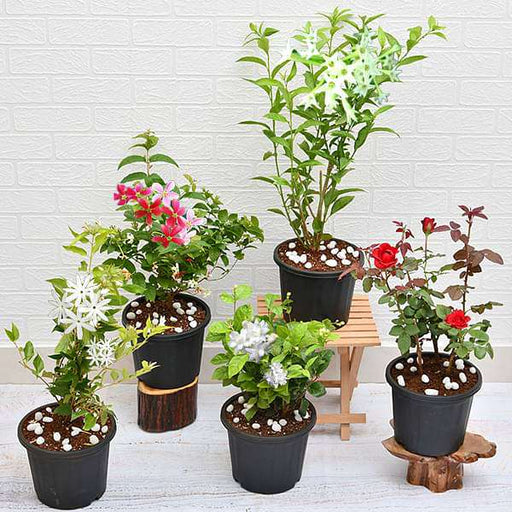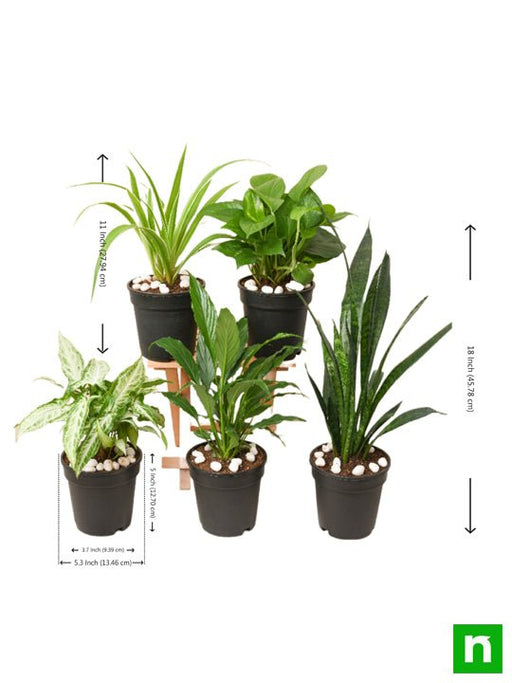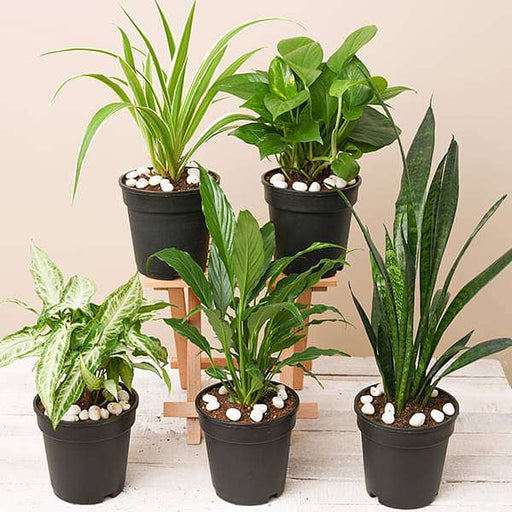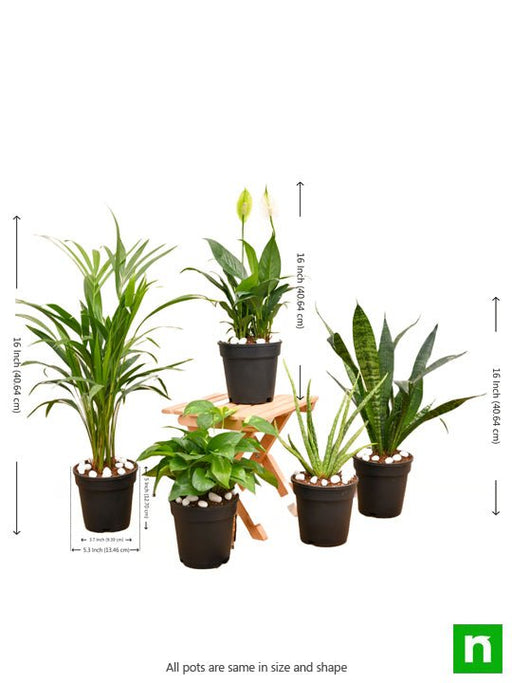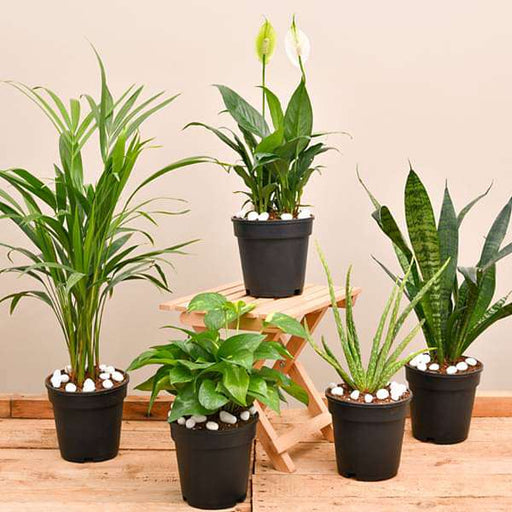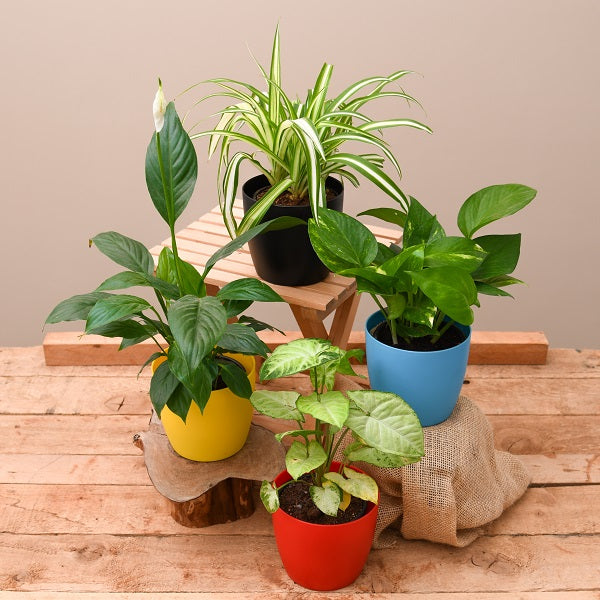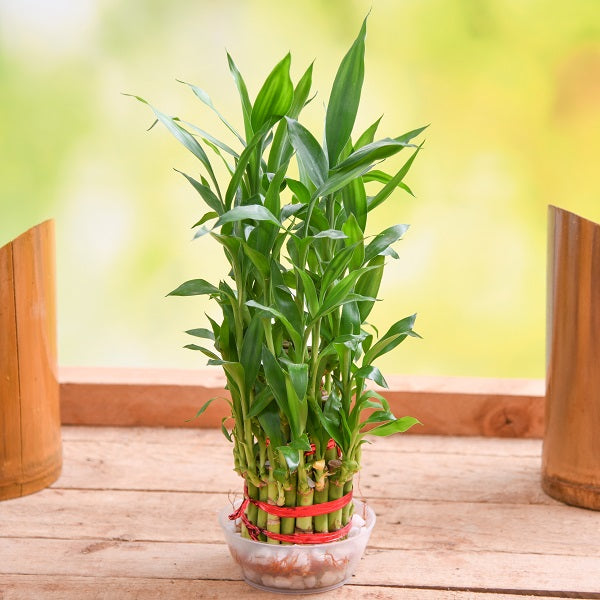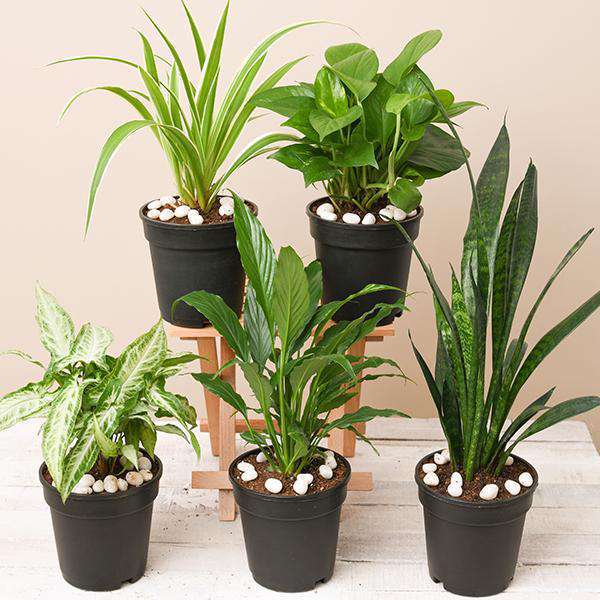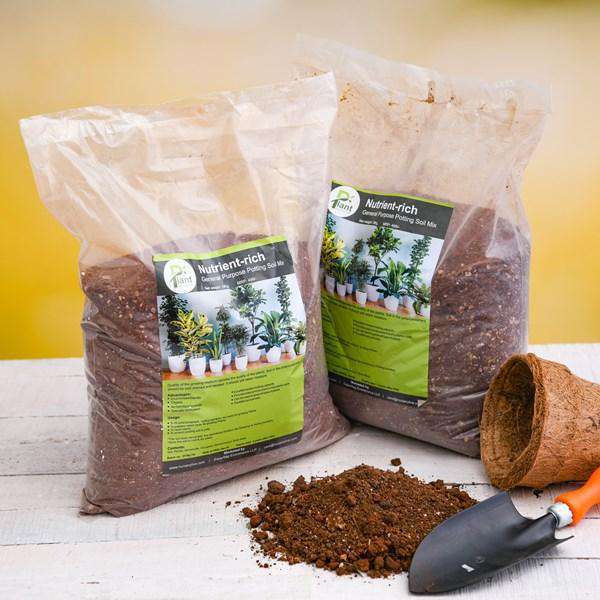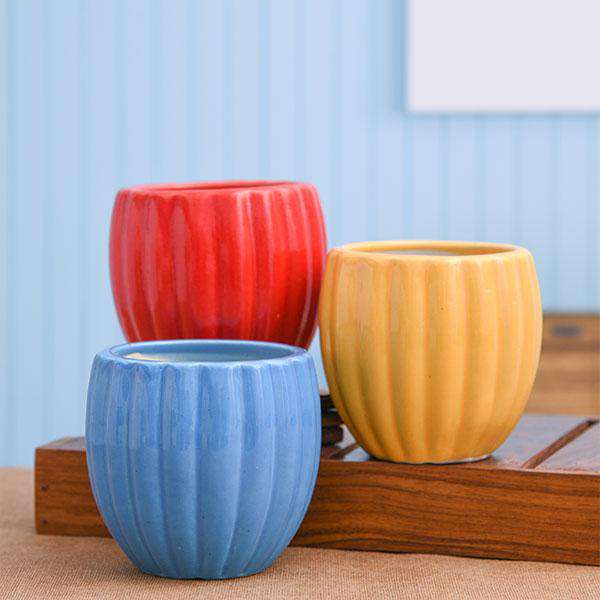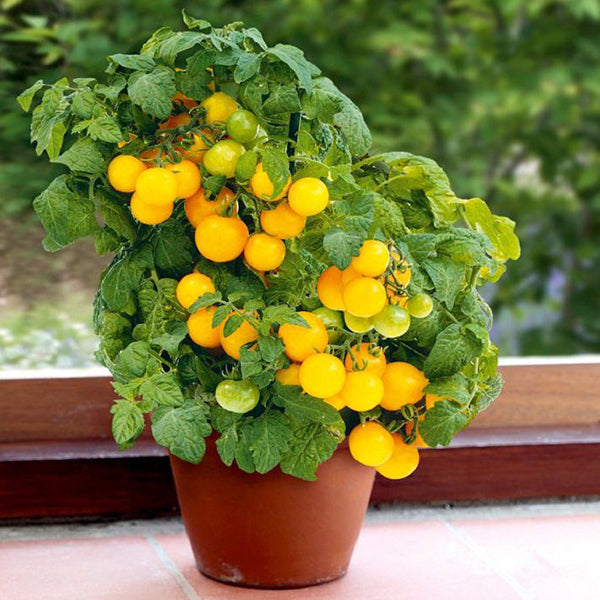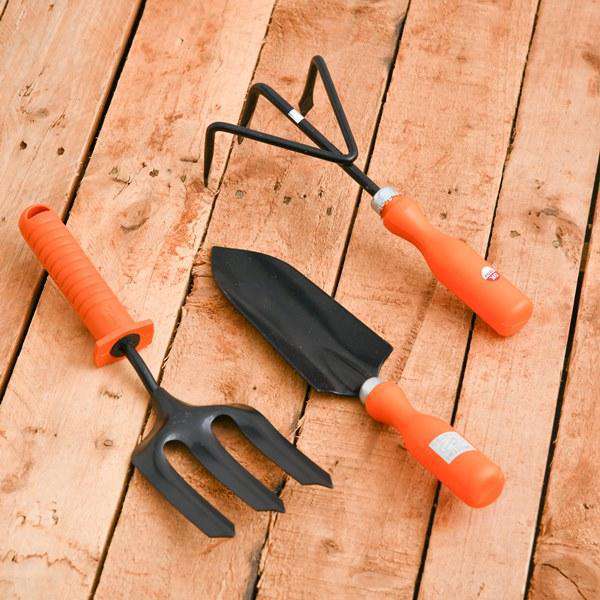Description
The amazing 5 pointed, yellow, star shaped flowers are banded in coppery brown with a dark red lifesaver rim making it appropriately named Life Saver Plant. This low growing succulent has 4 sided stems with soft teeth at the edges and the flowers emerge intermittently.
Constituents:
- Huernia zebrina - Succulent Plant- 1
- 3 inch (8 cm) Grower Round Plastic Pot (Black)- 1
- 3.3 inch (8 cm) Square Plastic Planter with Rounded Edges (Red)- 1
Plant SpecificationsWinter hardy to USDA Zones 8 to 12. In St. Louis, it is easily grown as a houseplant. It is noted for its ease of culture and tolerance for wide range of growing conditions. Use a peaty, soil-based potting mix. Best in filtered sun.
| Plant Height |
3 inch (8 cm) |
| Plant Spread |
3 inch (8 cm) |
*above specification are indicative only. actual dimensions may vary by +-10%
| Common Name |
Life saver plant |
| Maximum Reachable Height |
0.50 to 0.75 feet |
| Flower Colour |
Pink |
| Bloom Time |
Seasonal bloomer |
| Difficulty Level |
Easy to grow |
Planting and care
Huernias require a potting mix with excellent drainage. A succulent plant mix of 50 percent pumice or perlite, 25 percent peat or organic mulch, and 25 percent sand helps prevent rotting and overwatering. Roots experience dieback in cool season dormancy, so plants grow best in shallow containers that allow the soil to dry out quickly.
Lifesaver plants prefer bright light or partial shade. In nature, they grow underneath shrubs or other plants. Too much sun causes stems to develop protective reddish or purple pigmentation and can actually scald the stems. Too little light leads to weak, thin growth with decreased flower production.
Huernia zebrina care
Lifesaver plants can be grown as intriguing indoor, greenhouse or summer patio container plants almost anywhere. Species such as Huernia zebrina, H. pillansii, H. keniensis and H. primulina can be grown in outdoor landscapes in warm-winter and Mediterranean climates.
Protect outdoor plants from frost and rain during winter and full sun in summer. Plant enthusiasts worldwide grow Huernias because of their interesting stem shapes and colors and because of the often intricate and fascinating flower forms and colo
| Sunlight |
Full sun to part shade |
| Watering |
Medium |
| Soil |
Well-drained soil |
| Temperature |
10 degrees C |
| Fertilizer |
Apply any organic fertilizer |
Huernia zebrina special feature
Easy to grow. As a houseplant, grow in pots, hanging baskets or along shelves. Ground cover or bedding plant where it can be grown outdoo
Huernia zebrina uses
Ornamental Use:
- The plant is used for ornamental purpose
